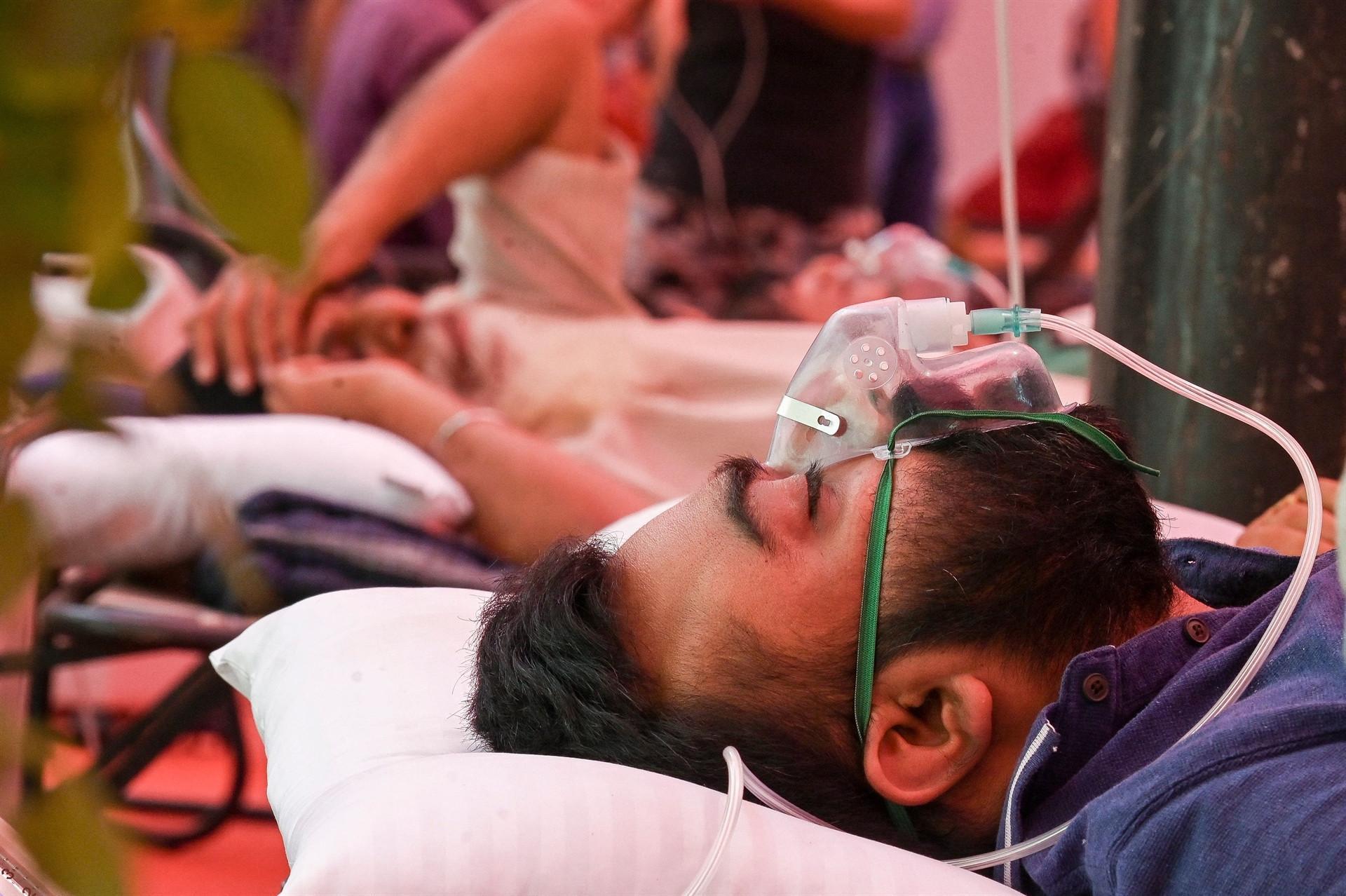India sees record COVID-19 deaths, new cases in 24 hours
NEW DELHI-Agence France-Presse

India saw record new jumps in COVID-19 cases and deaths on May 6, dashing tentative hopes that the catastrophic recent surge was easing.
Health ministry numbers showed 3,980 deaths in the past 24 hours, taking the national total to 230,168, and 412,262 new cases, bringing India’s caseload since the pandemic began to 21.1 million.
Many experts suspect that with low levels of testing and poor record-keeping for cause of death - and crematoriums overwhelmed in many places - the real numbers could be significantly higher.
The rise follows several days of falling case numbers that had raised government hopes that the virus surge may have been easing.
Having hit a high of 402,000 last Friday, the daily number of cases eased to as low as 357,000 before creeping up again on Tuesday.
Senior health ministry official Lav Aggarwal had told reporters on Monday that there was a "very early signal of movement in the positive direction".
The sharp rise in cases since late March has overwhelmed hospitals in many places, with fatal shortages of beds, drugs, and oxygen.
Prime Minister Narendra Modi’s government has resisted imposing a new lockdown although several regions including the capital New Delhi, Bihar, and Maharashtra have imposed local shutdowns.
Until now the worst-hit areas have been Delhi and Maharashtra but other states including West Bengal, Kerala, and Karnataka are now reporting sharp rises.
K. Vijay Raghavan, the Indian government’s principal scientific advisor, said on May 5 that the country of 1.3 billion had to be ready for another wave of infections after the current one.
"Phase 3 is inevitable given the high levels of circulating virus. But it is not clear on what timescale this phase 3 will occur. We should prepare for new waves," Raghavan told a news conference.
With the government facing criticism as patients die outside hospitals, consignments of oxygen and equipment have been arriving from the United States, France, Britain, Russia, and other countries in recent days.
But India will need yet more oxygen from other countries to fight the surge until numbers stabilize, another government official said on May 3.
"We did not and do not have enough oxygen," the top government official said, speaking on condition of anonymity.
"If we could get more oxygen more lives would be saved."
Overnight, 11 people died in a hospital near the southern city of Chennai after pressure dropped in oxygen lines, the Times of India reported on Thursday, the latest in a string of similar incidents.
The International Federation of Red Cross and Red Crescent Societies has called for "urgent" international action to prevent "a worsening human catastrophe" across South Asia.
It highlighted the case of Nepal, where it said "many hospitals are full and overflowing" with COVID-19 patients and the daily caseload is 57 times higher than one month ago.
The National Centre for Disease Control (NCDC) said on Wednesday meanwhile that the U.K. strain of COVID-19 was more dominant in north India, while the new Indian variant known as B.1.617 was more prevalent in Maharashtra, Karnataka, and Gujarat, reports said.
















